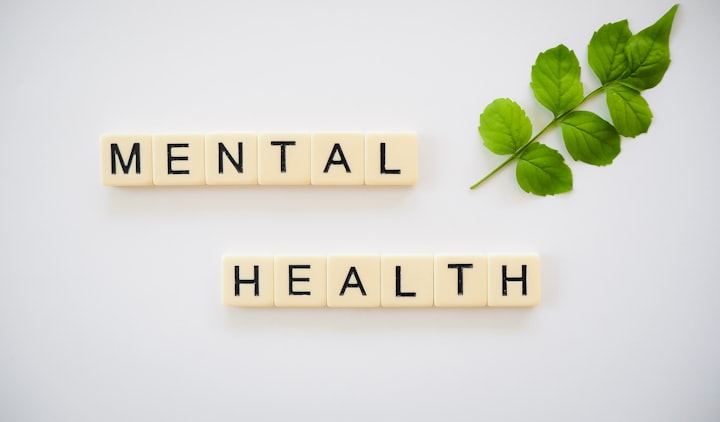Unlock the Secrets to a Happier Life: Proven Strategies for Curing Depression and Stress
proven ways of removing stress from your life

Importance of addressing depression and stress
Depression and stress are two of the most common mental health issues that people face today. They can have a significant impact on an individual's quality of life, affecting their ability to work, maintain relationships, and enjoy activities that they once found pleasurable.
Depression is a serious condition that can lead to feelings of hopelessness, helplessness, and a loss of interest in life. It can also cause physical symptoms such as fatigue, changes in appetite, and difficulty sleeping. Left untreated, depression can lead to serious complications such as suicide.
Stress is a normal part of life, but when it becomes chronic, it can take a toll on both physical and mental health. Chronic stress can lead to a variety of physical health problems such as high blood pressure, heart disease, and diabetes, as well as mental health issues like depression and anxiety.
Addressing depression and stress is important for improving overall well-being and quality of life. It can help individuals to regain control of their lives, restore relationships, and return to the activities that bring them joy. Seeking help early on can also prevent the development of more serious conditions and complications.
Understanding the causes of depression and stress
Depression and stress can be caused by a variety of factors, including biological, psychological, and environmental factors.
Biological factors that can contribute to depression and stress include:
Genetics: Depression and other mental health conditions can run in families.
Chemical imbalances in the brain: Depression is often linked to imbalances in the levels of certain chemicals in the brain, such as serotonin and dopamine.
Hormonal imbalances: Hormonal changes, such as those that occur during pregnancy, menopause, or thyroid disorders, can contribute to depression and stress.
Medical conditions: Certain medical conditions, such as heart disease, cancer, or chronic pain, can contribute to depression and stress.
Psychological factors that can contribute to depression and stress include:
Trauma: Traumatic events, such as the loss of a loved one, abuse, or natural disasters, can lead to depression and stress.
Negative thinking: Negative thinking patterns, such as rumination, can contribute to depression and stress.
Low self-esteem: Negative self-talk, self-criticism and low self-esteem can contribute to depression and stress.
Environmental factors that can contribute to depression and stress include:
Workplace: High-stress jobs, long hours, and a lack of control over one's work can contribute to depression and stress.
Social isolation: Lack of social support and isolation can contribute to depression and stress.
Financial difficulties: financial insecurity, debt and poverty can contribute to depression and stress
Life changes: Significant life changes, such as moving, starting a new job, or getting married, can contribute to depression and stress.
It's important to note that the causes of depression and stress can vary from person to person and often multiple factors interact and contribute to the onset of these conditions.
Traditional treatment options
Traditional treatment options for depression and stress include medication, therapy, and hospitalization.
Medication: Antidepressant medications, such as selective serotonin reuptake inhibitors (SSRIs) and tricyclic antidepressants (TCAs), can help to balance the levels of certain chemicals in the brain, which can help to reduce symptoms of depression and anxiety. Antidepressant medication can take several weeks to start working and should be taken under the guidance of a healthcare professional.
Therapy: Talking to a mental health professional, such as a therapist or counselor, can help individuals to understand and cope with their feelings and thoughts. Therapy can help people to identify negative thinking patterns and replace them with more positive ones. Types of therapy used to treat depression and stress include cognitive-behavioral therapy, talk therapy, and interpersonal therapy.
Hospitalization: In some cases, people with severe depression or suicidal thoughts may require hospitalization to keep them safe and provide them with around-the-clock care. Hospitalization can provide an opportunity for a person to stabilize their condition, receive intensive therapy, and be closely monitored by medical staff.
It's worth noting that treatment for depression and stress can involve a combination of different options and what works for one person may not work for another, so it's important to work with a healthcare professional to develop an individualized treatment plan.
Alternative treatment options
Alternative treatment options for depression and stress are non-traditional and non-medical methods for managing mental health conditions. These options are not typically considered as first-line treatment options, but they may be used in conjunction with traditional treatment options or as standalone treatment options. Some examples of alternative treatment options include:
1. Exercise: Regular physical activity has been shown to be effective in reducing symptoms of depression and stress. Exercise has been found to release endorphins, which are chemicals in the brain that help to improve mood.
2. Meditation and yoga: These practices help to promote relaxation and reduce stress by teaching individuals to focus on the present moment, and to let go of negative thoughts and feelings.
3. Acupuncture: This traditional Chinese medicine practice involves the insertion of thin needles into specific points on the body to promote healing and balance. Acupuncture has been found to be effective in reducing symptoms of depression and stress.
4. Herbal supplements: Some herbs, such as St. John's Wort, have been found to be effective in reducing symptoms of mild depression. Herbal supplements should be used under the guidance of a healthcare professional, as they can interact with other medications.
5. Light therapy: Light therapy, also known as phototherapy, involves exposing individuals to bright light for a certain period of time. This can help to regulate the body's circadian rhythm and improve mood.
6. Nutrition: Eating a healthy diet can help to promote overall well-being and reduce symptoms of depression and stress. Some foods, such as omega-3 fatty acids, have been found to be particularly beneficial for mental health.
It's important to note that alternative treatment options should be used under the guidance of a healthcare professional, as they can have potential side effects or interactions with other medications.
Developing a personalized treatment plan
Developing a personalized treatment plan for depression and stress is important because every individual's experience with these conditions is unique. A personalized treatment plan should be developed in collaboration with a healthcare professional and take into account the individual's specific needs, preferences, and circumstances.
Here are some steps that can be taken to develop a personalized treatment plan:
1. Assessment: A healthcare professional will conduct a comprehensive assessment of the individual's symptoms, medical history, and current circumstances to determine the best course of treatment.
2. Setting treatment goals: Together with the healthcare professional, the individual will set realistic and specific treatment goals. These goals should be specific, measurable, and time-bound.
3. Choosing treatment options: The healthcare professional will work with the individual to choose the most appropriate treatment options. This may include traditional treatments such as medication and therapy, as well as alternative treatments such as exercise and meditation. The individual's preferences and circumstances will be taken into account when making treatment decisions.
4. Monitoring progress: The healthcare professional will monitor the individual's progress and make adjustments to the treatment plan as needed. This may include increasing or decreasing the frequency of therapy sessions, or adjusting medication dosages.
5. Support: The healthcare professional will provide support and guidance to the individual throughout the treatment process. This may include providing information about community resources or connecting the individual with support groups.
6. Continuation of care: The healthcare professional will work with the individual to develop a plan for continuing care after the treatment ends, to ensure that the progress made is sustained in the long-term.
It's important to note that the treatment plan should be reviewed periodically and modified as needed to ensure that the individual's needs are being met. Additionally, it's important that the individual is an active participant in the treatment process and that they understand the goals of the treatment plan, the expected outcomes, and the possible side effects of the treatments.
Conclusion →↓
In conclusion, depression and stress are common mental health conditions that can have a significant impact on an individual's quality of life. It's important to address these conditions and to develop a personalized treatment plan that takes into account the individual's specific needs, preferences, and circumstances.
Traditional treatment options, such as medication and therapy, have been found to be effective in reducing symptoms of depression and stress. Alternative treatment options, such as exercise, meditation, and acupuncture, may also be used in conjunction with traditional treatments or as standalone treatment options.
It's important to work with a healthcare professional to develop a personalized treatment plan that includes both traditional and alternative treatment options. The healthcare professional will monitor progress, make adjustments as needed, and provide support and guidance throughout the treatment process.
Ultimately, developing a personalized treatment plan and addressing depression and stress can lead to a happier, healthier life. It's important to remember that it is possible to overcome these conditions and to seek help if needed.
About the Creator
Rehmat Well-being
Transform your life with us! we empower you with health tips, mindfulness practices, and a holistic approach to a happier life. Nourish your mind, body, and soul and live your best life. Join the journey to radiant health and joyous living!






Comments
There are no comments for this story
Be the first to respond and start the conversation.